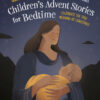Karen Whiting graciously invited me to do a monthly CAN blog on PUGS Pointers and other editing tips. If you’re not familiar with the term, “PUGS” is my acronym for Punctuation, Usage, Grammar, and Spelling. In this blog, I’ll share tips on PUGS rules that writers struggle with most, based on my years as a professional freelance editor. I’ll also explain why it’s important for writers to polish their PUGS. Each monthly blog will address one item in each area. For more PUGS Pointers, see my website, www.KathyIde.com. Or you can get my book “Polishing the PUGS,” through the “Published Works” page of my site.
PUGS Pointers are based on the current industry-standard references in the United States. For books (and many popular magazines), that’s The Chicago Manual of Style (16th edition, © 2010) and Merriam-Webster’s Collegiate Dictionary (11th edition, © 2003). For newspapers and journalistic-style magazines, it’s The Associated Press Stylebook (reprinted every year) and Webster’s New World College Dictionary (© 2002). Christian publishers also use The Christian Writer’s Manual of Style.
Many publishing houses have their own in-house style guides that may differ in some aspects from the standard references. However, unless you’re writing exclusively for one particular publisher, it’s best to follow the standard references and let the in-house proofreaders adjust to house style. But unless you’re writing for a specific house and you know their rules, it’s best to go by the industry standards.
WHY POLISH YOUR PUGS?
Literary agent Richard Curtis wrote (in The Christian Communicator, June 2001):
It was not long ago that the prevailing attitude among editors was, “This book has some problems, but the author is so talented that I’d like to buy it and work with him.” Today such words are rarely heard. A book with problems is a book rejected.
Editors receive so many manuscripts from so many authors every day, they can afford to reject them for the most miniscule reasons. You don’t want a few PUGS errors to cause your manuscript to be rejected!
PUNCTUATION TIP:
Capitalization of Family Relationships
“Kinship names” (father, brother, etc.) are lowercased when used generically (“the youngest mother in the group,” for example) or when preceded by a modifier (“my dad,” “your mom,” “our brother,” etc.).
When used before a proper name, or alone in place of the name, kinship names are capitalized. Examples:
“I know that Mother’s middle name is Janice.”
“Will Aunt Becky be singing?”
“Will her uncle Ed be at the book signing?”
“Hey, Dad, are we going fishing today?”
USAGE TIP:
any more/anymore
any more (adjective) means “any additional.”
“I don’t want to hear any more backtalk from you!” hollered Cindy.
anymore (adverb) means “any longer.”
“I don’t want to listen to you anymore,” cried Linda.
NOTE: Adjectives modify nouns. Adverbs modify adjectives, adverbs, or verbs.
GRAMMAR TIP:
each other vs. one another
Use each other when referring to two.
“Angie and Gwen discussed the book with each other.”
Use one another when referring to more than two.
“The critique group members discussed their manuscripts with one another.”
SPELLING TIP:
good-bye (with a hyphen) if you’re writing books, short stories that will be included in books, or articles for popular magazines.
goodbye (without a hyphen) if you’re writing articles (for journalistic-style magazines, newspapers, or most newsletters).


